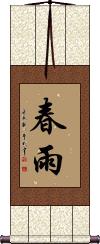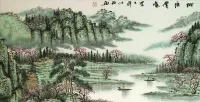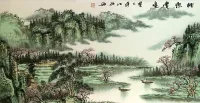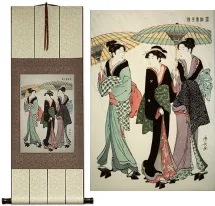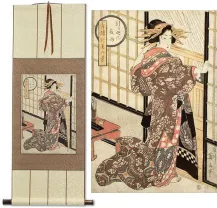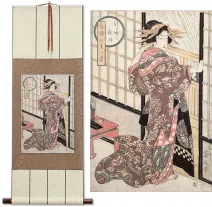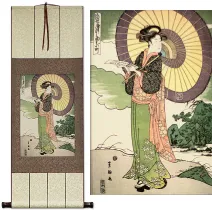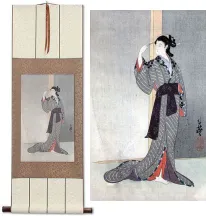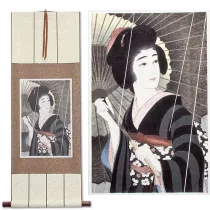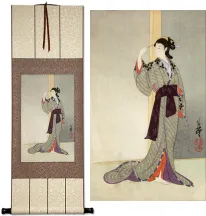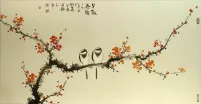Many custom options...
And formats...

Harusame Spring Rain in Chinese / Japanese...
Buy a Harusame Spring Rain calligraphy wall scroll here!
Harusame / Spring Rain
This in-stock artwork might be what you are looking for, and ships right away...
Gallery Price: $400.00
Your Price: $138.88
Gallery Price: $400.00
Your Price: $138.88
Gallery Price: $108.00
Your Price: $59.88
Gallery Price: $108.00
Your Price: $59.88
Gallery Price: $108.00
Your Price: $59.88
Gallery Price: $108.00
Your Price: $59.88
Gallery Price: $108.00
Your Price: $59.88
Gallery Price: $108.00
Your Price: $59.88
Gallery Price: $126.00
Your Price: $69.88
Gallery Price: $108.00
Your Price: $59.88
Gallery Price: $200.00
Your Price: $69.88
Gallery Price: $72.00
Your Price: $39.88
Gallery Price: $322.00
Your Price: $178.88
Not the results for Harusame Spring Rain that you were looking for?
Below are some entries from our dictionary that may match your Harusame Spring Rain search...
| Characters If shown, 2nd row is Simp. Chinese |
Pronunciation Romanization |
Simple Dictionary Definition |
春雨 see styles |
chūn yǔ chun1 yu3 ch`un yü chun yü harusame はるさめ |
More info & calligraphy: Harusame / Spring Rain(1) gentle spring rain; (2) (はるさめ only) {food} glass noodles; cellophane noodles; thin noodles made from bean starch (or potato starch); (female given name) Harusame |
春雨物語 see styles |
harusamemonogatari はるさめものがたり |
(work) Harusame Monogatari (1808 collection of stories by Ueda Akinari); Tales of Spring Rain; (wk) Harusame Monogatari (1808 collection of stories by Ueda Akinari); Tales of Spring Rain |
The following table may be helpful for those studying Chinese or Japanese...
| Title | Characters | Romaji (Romanized Japanese) | Various forms of Romanized Chinese | |
| Harusame Spring Rain | 春雨 | harusame | chūn yǔ / chun1 yu3 / chun yu / chunyu | ch`un yü / chunyü / chun yü |
Successful Chinese Character and Japanese Kanji calligraphy searches within the last few hours...
